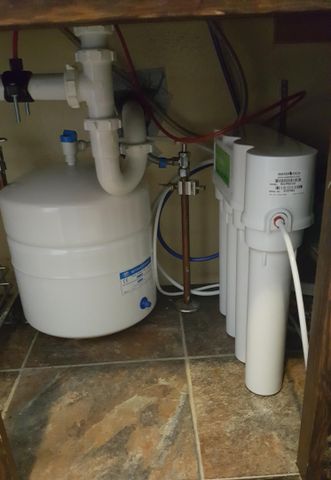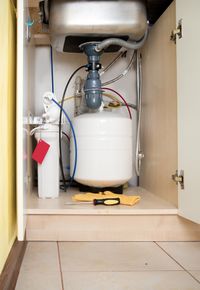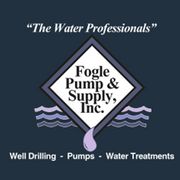
If you’re on the market for a water filtration system, you may have heard the term “reverse osmosis”. Unfortunately, most homeowners have no idea what that is, how it works, and what it does (and does not) remove. By taking the time to understand the process and how it works, you can better determine if a reverse osmosis water filtration system is right for you and your home.
What is Reverse Osmosis?
Reverse osmosis, or RO, the process of water passing through a semi-permeable membrane from the force of applied pressure. That pressure allows for the opposite of osmosis, which is the process of a low-concentration solution passing through the membrane to the highly concentrated solution, to happen. The process eliminates impurities and contaminants in the water supply to create fresh, drinkable water.
What does it Remove?
A RO water filtration system can remove metal ions, aqueous salts, and other chemical contaminants from the water supply. These may include sodium, chloride, copper, and lead. It may also reduce the amount of other elements in the water, such as fluoride, nitrate, and phosphorous. What RO can’t remove is dissolved gases like carbon dioxide, oxygen, and ammonia, as well as some other organic contaminants and certain bacteria and viruses.
 How does it Work?
How does it Work?
In a RO water filtration system, the supply or “feed” water enters a water pump that pushes it through the semi-permeable membrane with enough force to overcome natural osmosis. The remaining contaminants are left behind to drain out. The clean, filtered water is then available through your home’s faucets for cooking, drinking, and any other uses you may need it for. You can expect your RO water filtration system to remove 95 to 99% of the contaminants previously mentioned.
Although it sounds easy enough to install a water filtration system yourself, it’s usually best to consult with an expert. Fogle Pump & Supply is a water well drilling company in Colville, WA, that installs water softeners and filtration systems in addition to well pumps and handling the initial drilling. They can help you determine whether reverse osmosis is right for your home or whether you’d benefit from another type of water system and then perform the installation for you. Learn more on their website, and call (509) 684-2569 to request a free estimate.
About the Business
Have a question? Ask the experts!
Send your question

